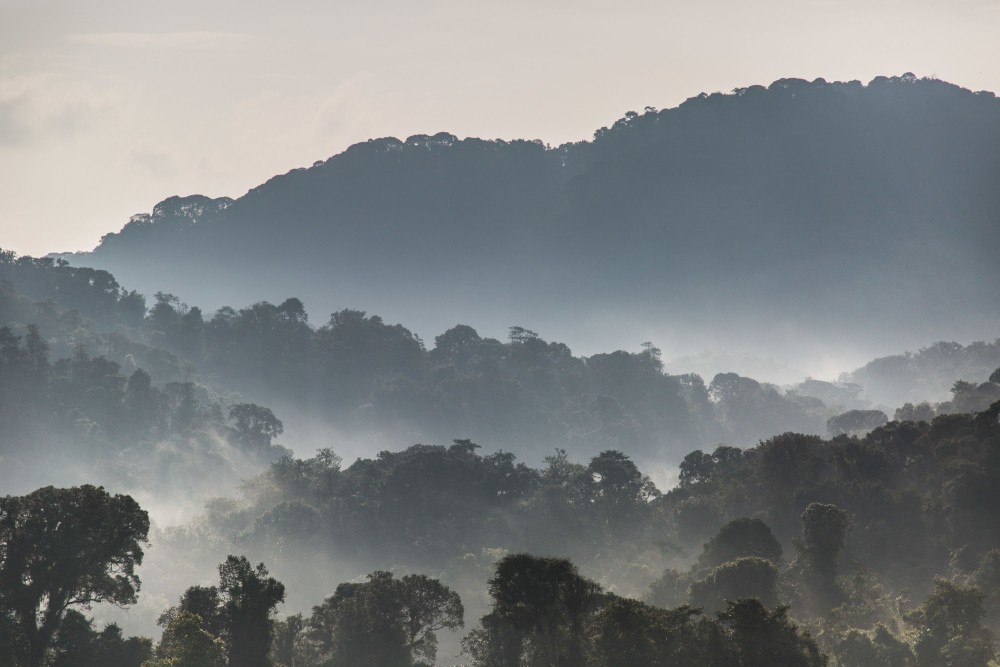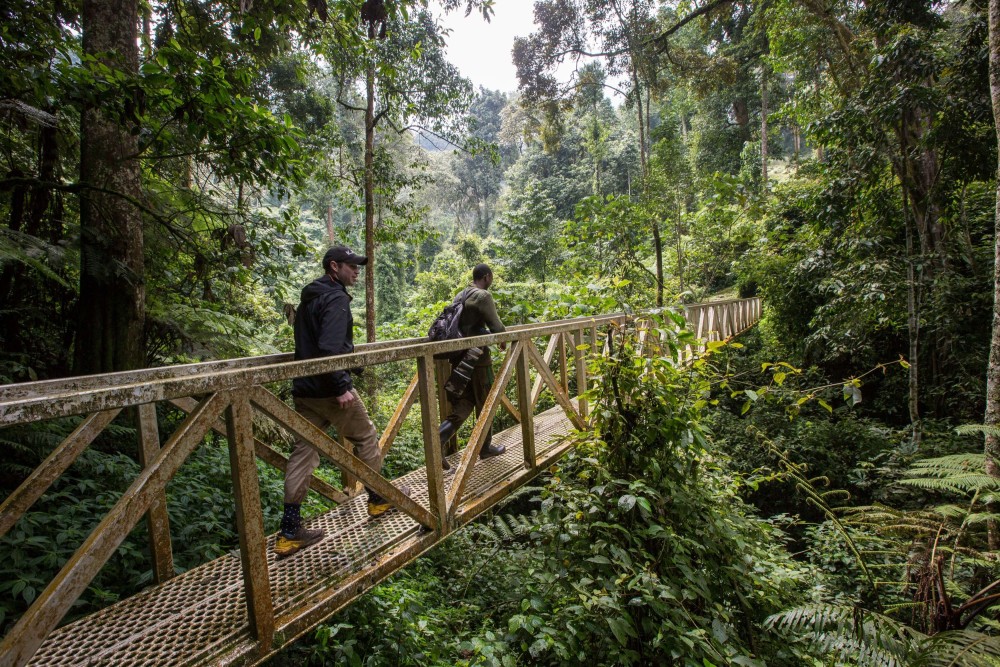Engaging with the communities on conservation, sustainable livelihoods and human-wildlife conflict mitigation means that Nyungwe is well placed to support healthy terrestrial ecosystems to benefit wildlife and people long into the future.
Community Engagement

Community environmental awareness meetings take place regularly; in 2022, 185 meetings were held, reaching over 30,000 people. Community Liaison Officers are stationed at different sites within the communities surrounding the park to support this relationship, as well as oversee education and economic-development activities. The eco-ranger team acts as a facilitator between conservation law enforcement and communities, forming a link between the community and the park.
Education and Environmental Awareness
Education is a vital part of the long-term vision of Nyungwe. In 2022, nearly 1,600 school children and local leaders visited Nyungwe.
Sustainable Enterprise Development

To provide local communities with alternative, sustainable livelihood opportunities, African Parks is exploring various initiatives to stimulate local businesses that reduce pressure on the park’s ecosystem.
Current projects around the park include beekeeping and community tourism programmes supporting local people with skills development to become tourist guides. A pig farming project and demo apiary have been implemented to serve as model enterprises which can be replicated by others. On the horizon are medicinal plant and bamboo cultivation, fish farming, agroforestry and further tourism-focused enterprises, designed to replace unsustainable harvesting from the forest and grow a conservation-linked local economy.
